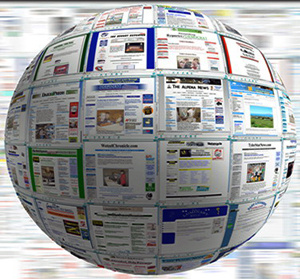Sacked Iran FM unaware he was to be fired

Washington Post-- Iran’s recently fired foreign minister told a local news agency that he had not been aware of plans to remove him from his post when he left on a mission to west Africa.
Manouchehr Mottaki told Mehr news agency, in a report issued Sunday, that he was "never informed" about the dismissal while on his trip.
Mottaki called the dismissal during the mission "un-diplomatic and offensive."
On Saturday Mohammad Reza Rahimi, one of Iran’s dozen vice presidents, said during the farewell ceremony that Mottaki knew he was going to be replaced ahead of his Africa trip.
Ali Akbar Salehi, head of Iran’s nuclear department, became the acting foreign minister on Saturday.
The president’s decision to fire Mottaki prompted an outcry in Iran’s parliament and media last week.
Iran fetes new foreign minister ahead of nuclear talks
LA Times--The caretaker minister, Ali Akbar Salehi, emphasizes improving ties in the Muslim world and with the EU. Meanwhile the U.S. seeks to drum up regional support against Iran’s nuclear program.
Tehran and Washington are seeking to expand their regional influence ahead of another round of talks over Iran’s nuclear program, which has become a source of widespread international concern.
On Saturday, Iran feted its newly designated caretaker foreign minister, Ali Akbar Salehi, with a reception in Tehran. Salehi announced that he would seek to strengthen ties with Turkey and Saudi Arabia, a Sunni Arab-led power that has bristled at Shiite Iran’s growing influence in the Middle East.
Meanwhile in Bahrain, Adm. Michael G. Mullen, chairman of the U.S. Joint Chiefs of Staff, met with the island nation’s king Friday night and sought to rally friendly Arabian Peninsula nations to the cause of curbing Iran’s nuclear program.
"A regional approach is very powerful in deterring a country like Iran," Mullen said, according to the Pentagon website. "That kind of regional approach … is needed. None of us can do this alone. We need partners now and in the future."
Mullen added, "From my perspective, I see Iran continuing down the path to developing nuclear weapons, and achieving that goal would be very destabilizing to the region."
Salehi, a diplomat and scientist who most recently served as the head of Iran’s nuclear program, replaced longtime Foreign Minister Manouchehr Mottaki, who was dismissed abruptly while on a trip to Senegal. Mottaki didn’t attend Saturday’s event even though official media described it as a ceremony to bid him farewell. Continued…
Iran launches economic reform plan
Press TV--Iranian President Mahmoud Ahmadinejad has announced the launch of his economic reform plan aimed at overhauling the country’s economy by shelving energy and food subsidies
President Ahmadinejad said on Saturday that the major plan will start on Sunday and that all subsidies would gradually be removed during a five-year period.
Before the official announcement of the plan, every family member received a sum of 810,000 rials ($80) for two months.
The Iranian chief executive also asked Iranians not to hurry in withdrawing the funds from their bank accounts.
He also vowed that the Iranian government would tackle economic problems such as housing, unemployment and the banking system by implementing the plan.
According to the president, the plan will lead to a better distribution of wealth among the public.
Under the new rationing system, the price of gasoline will rise four-fold from 1,000 rials (10 cents) per liter to 4,000 rials (40 cents) per liter as of Sunday. Fuel beyond a person’s quota -- which is 50 liters per month -- is now sold at 7,000 rials (70 cents) per liter, up from 40 cents.The Iranian government also said in an announcement that it will also cut subsidies of diesel, kerosene, natural gas and electricity as of Sunday.
Officials say energy subsidies have been costing the Iranian government around 100 billion dollars a year.
The government plans to gradually cut energy subsidies over the space of five years and has promised instead to compensate low income families with direct cash handouts.
Supporters of the plan say it is in line with global financial organizations’ recommendations that Iran get rid of a heavily subsidized economy if it wants to solve its economic problems. But, some analysts have criticized the plan, saying it could trigger a hike in prices and stoke up inflation in the country.

